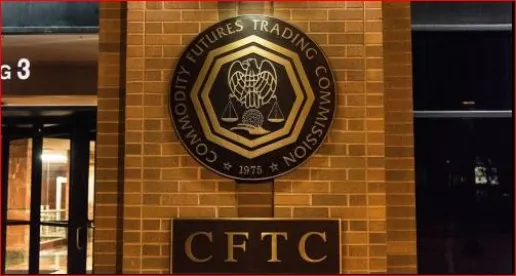Many major companies have announced a blueprint to minimize their carbon footprint. Some companies have gone so far as to proclaim that they will achieve “net zero” emissions in the near future. To accomplish their climate goals, many have turned to purchasing products called “carbon offset credits.”
Offset credits are defined as tradable “rights” or certificates linked to activities that lower the amount of carbon dioxide (CO2) in the atmosphere. These offsets are purchased and sold on what is commonly referred to as “voluntary carbon markets” (VCMs), where owners of carbon-reducing projects can sell or trade their carbon offsets to emitters who wish to offset the negative effects of their emissions.[1] The VCMs, however, have been subject to criticism and concern due to lack of effective regulation to combat potential fraud. In response, the US Commodity Futures Trading Commission (CFTC) has announced its intent to increase enforcement resources and expertise to police the carbon markets.
How It Works
The owner of the carbon-reducing project applies to an independent (and largely unregulated) registry for carbon offsets. The registry then evaluates the project, often relying on complex information submitted by the project owner, to determine whether and how much atmospheric carbon the project will reduce. If the registry determines the project will reduce atmospheric carbon, it will issue a carbon offset credit to the project owner.
Typically, one offset credit represents one metric ton of carbon dioxide removed or kept out of the atmosphere. The price of offset credits will vary depending on different project types, different levels of benefits, and the markets in which they are traded. Once the registry issues the offset credit, the project owner can sell it to whomever it wants on a VCM. It is not uncommon for profit-seeking entities such as brokers or investors to purchase the offset credit and then sell it to the “end user,” which is the entity that wants to take credit for the carbon reduction. Once the “end user” purchases the offset credit, the credit is “retired” to ensure that it cannot be sold again.
Although voluntary carbon markets have been around for decades, they have taken off in recent years amid a deluge of corporate climate commitments. From 2018 to 2021, the VCM’s value grew from $300 million to $2 billion. Global management consultancy company McKinsey estimates that the value of VCMs may reach as high as $180 billion by 2030, while Research and Markets has projected a global value of $2.68 trillion by 2028.
Yet, the voluntary carbon market is fragmented and largely unregulated, suffers from varying accounting standards, and has been described as “the Wild West” for fraud. An investigation by The Guardian found that 90% of offsets issued by one of the largest registries for rainforest preservation projects were worthless because they did not represent legitimate carbon reductions. The voluntary carbon market is largely unregulated in the United States, and carbon offsets are almost exclusively issued by nongovernmental entities. Perhaps not surprisingly, regulators have started to look at the voluntary carbon markets more closely. In particular, the CFTC has shown an increasing interest in carbon in recent years.
Road Ahead
In September 2020, the CFTC's Climate-Related Market Risk Subcommittee issued a report, "Managing Climate Risk in the U.S. Financial System," that concluded climate change poses a major risk to the stability and integrity of the US economy and presented several dozen recommendations to mitigate climate risks. Less than a year later, CFTC Chairperson Rostin Behnam created the Climate Risk Unit to focus on the role of derivatives "in climate-related risk and transitioning to a low carbon economy."
In June 2022, the CFTC held the first ever Voluntary Carbon Markets Convening to discuss issues related to a potential carbon offset market and to solicit input from industry participants in the CFTC's potential role. After the Convening, the CFTC issued an RFI asking whether and how the CFTC should be involved in creating and regulating a voluntary carbon market. The responses to the RFI reflected that, while most industry participants agreed on the need for additional transparency and standardization in the voluntary carbon markets, they disagreed on the role the CFTC should play in such a market. A group of seven United States senators, including Sens. Cory Booker (D-NJ) and Elizabeth Warren (D-MA), argued that the CFTC should establish a robust regime governing the carbon market. Others argued that it is too soon for the CFTC to create rules and a registration mechanism, expressing concern that those actions might stifle industry innovation and progress.
At a keynote speech in January 2023, Chair Behnam stated that the CFTC “can play a role in voluntary [carbon] markets.” CFTC Commissioner Goldsmith Romero echoed the sentiment a month later in another speech and gave proposals for the CFTC to “promote resilience to climate risk.” Among those was a proposal that the “Commission should promote market integrity by increasing enforcement resources and expertise to combat greenwashing and other forms of fraud.”
The voluntary carbon market, Goldsmith Romero noted, “carr[ies] particular concerns of greenwashing, fraud, and manipulation” which “can lead to serious harm, distort market pricing, seriously damage a company’s reputation, and undermine the integrity of the markets.” This is particularly true with an esoteric commodity such as carbon offsets. For tangible commodities such as soybeans or oil, verifying delivery of the goods is relatively easy. But for carbon offsets, the offset purchaser often cannot verify that the promised greenhouse gas reduction is actually occurring; instead, the purchaser must rely on the promises made by the project owner or independent registry.
At present, the CFTC has limited enforcement jurisdiction over carbon offsets because only a limited number of carbon derivatives are traded on regulated futures markets. Carbon, as well as carbon and other environmental offsets or credits, are generally considered “commodities” as defined by § 1a(9) of the Commodity Exchange Act of 1936 (CEA). As a regulated commodity, transactions involving carbon credits or offsets are subject to the CFTC’s anti-fraud and anti-manipulation enforcement jurisdiction.
As VCMs continue to grow, it is likely that offerings of carbon derivatives such as futures, options, and swaps will grow with them, which may provide the jurisdictional catalyst for the CFTC to get more involved. The CFTC has exclusive jurisdiction over the regulation of futures markets, including oversight of the listing of new contracts on futures exchanges. Currently, a limited number of carbon futures are available to trade, and most trade on already regulated exchanges such as the Global Emissions Offset (GEO) futures contracts traded at the Chicago Mercantile Exchange (CME). The price of CME’s GEO futures contract is based on CORSIA-eligible (Carbon Offsetting and Reduction Scheme for International Aviation) offset credits issued through specific independent registries.
But given the varying standards and methodologies for these registries, combined with an increasing number of investigations that have found significant issues with offset credits, it is reasonable to expect that the CFTC may eventually seek to engage in more oversight of the registries to ensure that futures contracts are not being manipulated and the offset credits are actually delivering the carbon reductions promised. Given that offsets are widely traded as commodities, that demand for offset-based derivatives products is growing, and that fraud may be a widespread problem throughout the marketplace, it seems like a matter of when, not if, the CFTC begins to regulate VCMs more heavily.
FOOTNOTES
[1] Although often used interchangeably, voluntary carbon markets are different from compliance carbon markets. Compliance carbon markets are regulated markets set by “cap-and-trade” regulations at the state, national, or international governmental organizations. Governmental organizations set a cap on carbon emissions and then provide members with credits that act as a “permission slip” for a company to emit up to the cap. Voluntary carbon markets, on the other hand, involve trading of carbon credits between companies to reduce their own carbon footprint.






 />i
/>i


